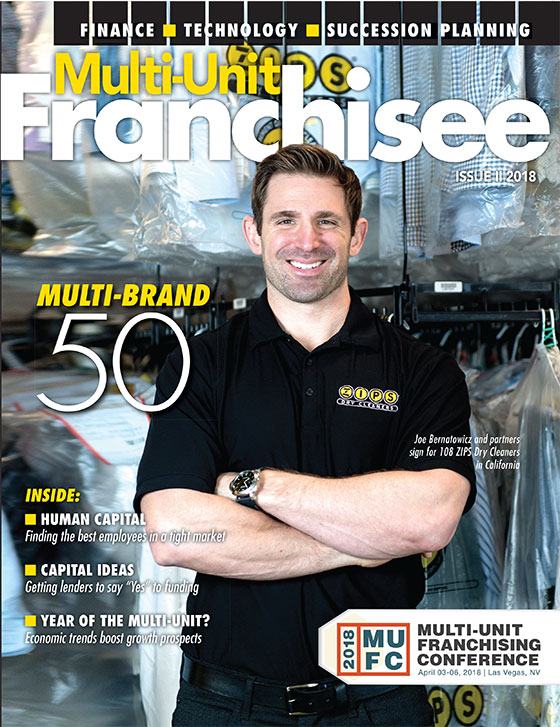Reps and Warranties

M&A insurance (if truth be not told)
Activity in the multi-unit space has been significant and growing for years, with seemingly all industry participants eager to get deals done. Franchised concepts are a hot commodity, and there's no shortage of buyers and sellers looking to engage. Yet despite all this interest, we still see a number of challenges arise over the course of any deal.
While there are a variety of reasons both buyers and sellers alike will face difficulties when working to close a deal, purchase agreement negotiations typically turn out to be the most arduous part of the process. In recent years, one of the aspects that has required a lot of attention has concerned "reps and warranties."
Reps and warranties [a term used to describe assertions made by a buyer and/or seller in a purchase and sale agreement] weren't always such a point of contention. It wasn't long ago that transactions had an air of "buyer beware" attached to the due diligence proceedings. True, sellers have always been legally required to disclose any and all information about their business that could have a future impact or economic effect post-close, but over the years these discussions have become increasingly more burdensome. Sellers no longer have the power to tell buyers to do their due diligence carefully and thoroughly, because after the deal closes, it's done.
These days, reps and warranties have taken on a much larger and more onerous position within purchase agreement negotiations. Often, it's no longer a straightforward discussion between the buying and selling parties, but instead a battle between their legal teams. Having a trusted lawyer in place for purchase agreement negotiations is crucial to any transaction's success. However, there are certain points of discussion, like those over reps and warranties, that can become unnecessarily long and drawn out in the process. Depending on the severity, this kind of occurrence regularly creates deal fatigue, ultimately having a negative impact on both parties and even interfering with a successful close.
Now we are seeing a trend in the industry, with one option in particular becoming more and more prevalent in today's market: rep and warranty insurance. With its ability to mitigate some of the otherwise laborious negotiations on the matter, and the inherent feeling of security that comes with being insured, rep and warranty insurance is an important topic to examine.
RWI: Ask an expert
To gain greater insight on the matter, I decided to reach out to one of the industry's leading insurance companies providing rep and warranty insurance in the M&A market today. Trisha Lee, the senior vice president of Lockton Companies, was gracious enough to contribute the following:
"Rep and warranty insurance (RWI) is at the forefront of merger and acquisition activity. RWI is a tool sellers use to transfer their escrow requirement to an insurance policy, thereby freeing up sale proceeds at closing. This enables a cleaner exit and locks in returns. From a buyer's perspective, this insurance mitigates counter-party risk and strengthens the relationship with management rollovers by eliminating potential clawbacks.
Claim examples could include a seller breaching the condition of assets representation, resulting in unexpected capital expense, or the financial statement representation such that the EBITDA determining the enterprise value was misrepresented. The insurance provides coverage over the general, fundamental, and tax representations with matching survival periods. Coverage can be structured for a specific representation or on a blanket basis. The process generally requires two weeks, and insurers look to the quality of the buyer's third-party diligence work for their underwriting. It is most likely used on transaction sizes of $40 million and above.
Markets that write these policies are varied, and are written in U.S. markets or foreign markets. Claims are being paid, and this policy is designed to respond for financial loss arising from a breach of a rep or warranty from an unknown pre-closing issue.
From 2014 to 2016, premiums written increased from $46 million to $400 million, and the number of policies in that time frame rose from 95 to more than 500. Driving this growth is the product's acceptance in the legal community as an effective M&A tool, along with improvements in the ease of placement and broader coverage language."
Conclusion
RWI is certainly an effective tool to carry in your deal-closing arsenal, as well as a wise and prudent choice for prospective buyers and sellers today. It's especially worth considering when you take into account RWI's ability to streamline the purchase agreement negotiation process, essentially eliminate unnecessary points of contention, and keep deal momentum up. Because no deal is the same and each transaction requires its own unique strategy, I can't say for certain that rep and warranty insurance is right for everyone. What I can say is that I believe RWI is truly a beneficial mechanism, and it's certainly worth exploring if you're pursuing a transaction in the M&A space today.
I would like to extend my sincerest appreciation to Ms. Lee for her contribution to this article. If you have any further questions, reach her by email at [email protected].
Dean Zuccarello is CEO and founder of The Cypress Group, a privately owned investment bank and advisory services firm focused exclusively on the multi-unit and franchise business for more than 25 years. He has more than 35 years of financial and transactional experience in mergers, acquisitions, divestitures, strategic planning, and financing in the restaurant industry. Contact him at 303-680-4141 or [email protected].
Share this Feature
Recommended Reading:
FRANCHISE TOPICS
- Multi-Unit Franchising
- Get Started in Franchising
- Franchise Growth
- Franchise Operations
- Open New Units
- Franchise Leadership
- Franchise Marketing
- Technology
- Franchise Law
- Franchise Awards
- Franchise Rankings
- Franchise Trends
- Franchise Development
- Featured Franchise Stories
FEATURED IN

Multi-Unit Franchisee Magazine: Issue 2, 2018

$1,000,000
$300,000





 The multi-unit franchise opportunities listed above are not related to or endorsed by Multi-Unit Franchisee or Franchise Update Media Group. We are not engaged in, supporting, or endorsing any specific franchise, business opportunity, company or individual. No statement in this site is to be construed as a recommendation. We encourage prospective franchise buyers to perform extensive due diligence when considering a franchise opportunity.
The multi-unit franchise opportunities listed above are not related to or endorsed by Multi-Unit Franchisee or Franchise Update Media Group. We are not engaged in, supporting, or endorsing any specific franchise, business opportunity, company or individual. No statement in this site is to be construed as a recommendation. We encourage prospective franchise buyers to perform extensive due diligence when considering a franchise opportunity.